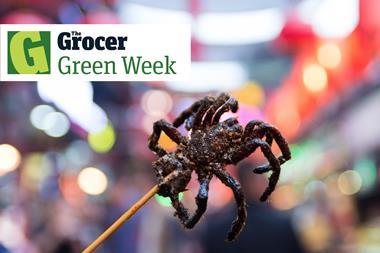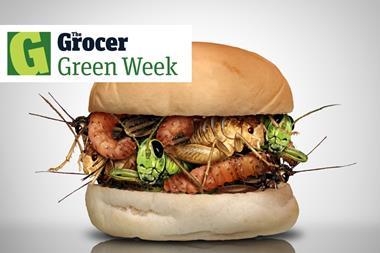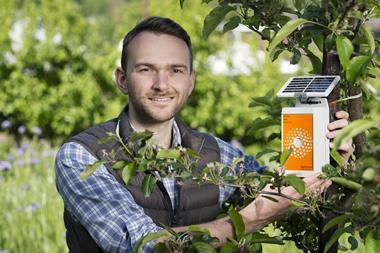
A new study has challenged the environmental case for farming insects, warning of biosecurity risks and the spread of disease.
The paper, ‘Have the environmental benefits of insect farming been overstated? A critical review’, compared the findings of scientific 352 papers and concluded insect farming was not as environmentally friendly as many have touted it to be.
Published in scientific journal Biological Reviews, the study highlighted issues with biodiversity risks, genetic contamination and carbon efficiency, despite insects being long touted as a future food for western countries.
“Insect protein has been widely hyped over the past decade, but our comprehensive review of the scientific literature tells a different story,” said Dr Dustin Crummett, affiliate instructor at the School of Interdisciplinary Arts and Sciences at the University of Washington Tacoma, who co-authored the report.
The review found that “while specific applications of insect farming show potential, the available evidence suggests that, in most cases, its impact on the sustainability of the food system is less positive than initially promised”.
It highlighted biodiversity risks, genetic contamination, circular economy flaws and the high carbon footprint of insect petfood as some of the core challenges.
The study additionally drew attention to the relative unsustainability of insect-based feed, the relatively high environmental profiles of edible insect products, the difficulties faced when using insect excrement as fertiliser, and insect farming’s lack of economic competitiveness.
Read more
-
Crickets, critics and comebacks: Why insect food isn’t done yet
-
It’s time to finally squash the idea of insects as food
In a section regarding zoonotic diseases and antibiotic usage, the review said intensive farming of insects could incur the same pressures as other animal farming industries, where intensification was a “key factor in disease emergence” and warned that insects represented a “reservoir for antibiotic-resistant bacteria”.
“There is essentially no public demand for farmed edible insects, and farming insects for petfood or farmed animal feed is usually worse – often many times worse – for the environment than even conventional options,” Crummett continued. “The same factors that make insect feed environmentally inefficient also make it economically uncompetitive, leading to the repeated failures of major industry players.”
He added there were “almost no meaningful safeguards” in place to protect the environment from any negative impact of insect farming, and said governments should act to address risks related to the industry and consider supporting other “more promising options” for sustainable food.
Insect-based petfood
Insect-based petfood accounts for half of the insect farming market, and data used in the review said it had a significantly higher carbon footprint compared with conventional products.
One study showed insect protein emits three to 30.2kg CO2e per kg of dry protein, versus about 1kg-2kg CO2e for conventional petfood protein.
The review also revealed insect-based products, due to insect farming’s resource-intensive nature, were significantly more expensive than alternatives, with insect meal being several times the cost of fishmeal and up to 10 times the cost of soymeal.
Is there a future for insect farming?
The reviewed conceded insect-based products could have environmental benefits where production systems were highly efficient.
“The use of waste may also be an important benefit. Technological advancements, such as heat recovery from nearby industrial processes, could help reduce environmental impacts,” it said. “Depending on economic viability, insects could play a role in waste management on small scales, especially with local substrates.”
However, it emphasised that the industry was in its infancy and that it was complex to predict which applications would be most “economically viable and sustainable at scale”.
Citing “significant knowledge gaps in the literature”, it said future research could help provide a “clearer understanding of the prospects for insect farming”.



















No comments yet